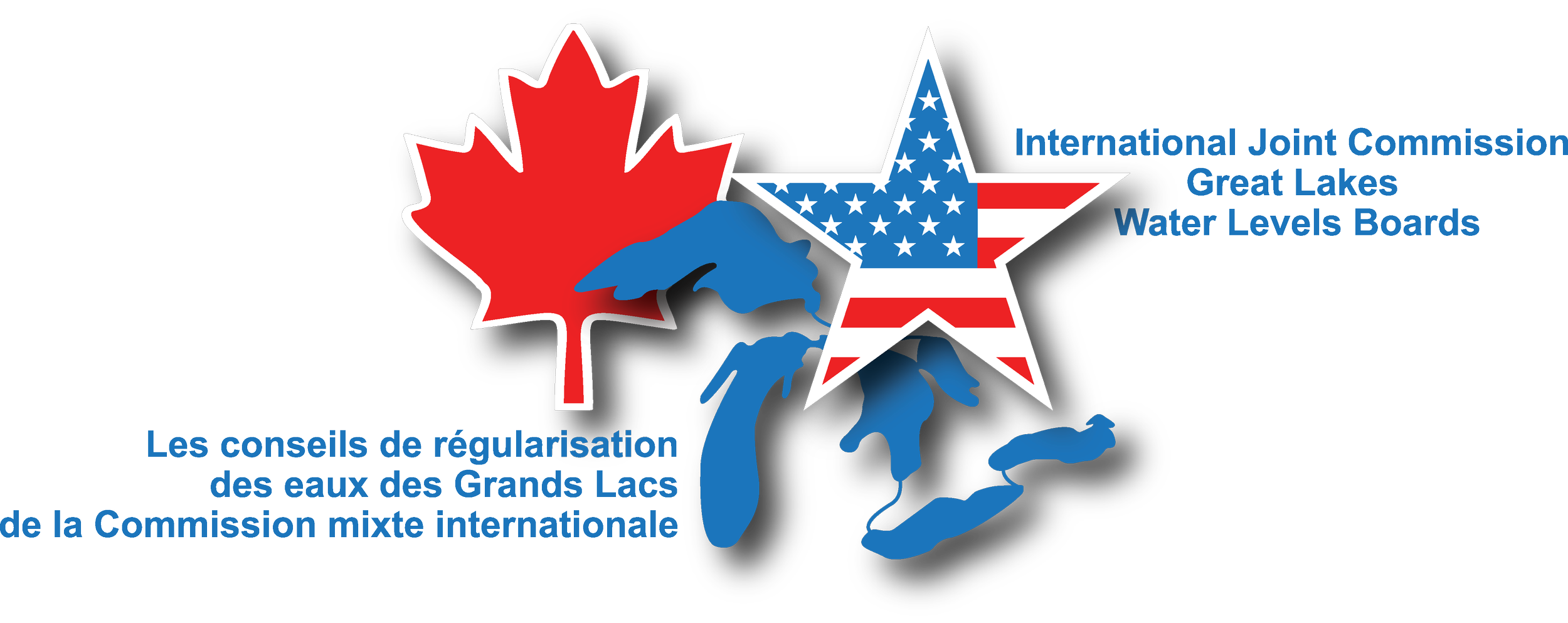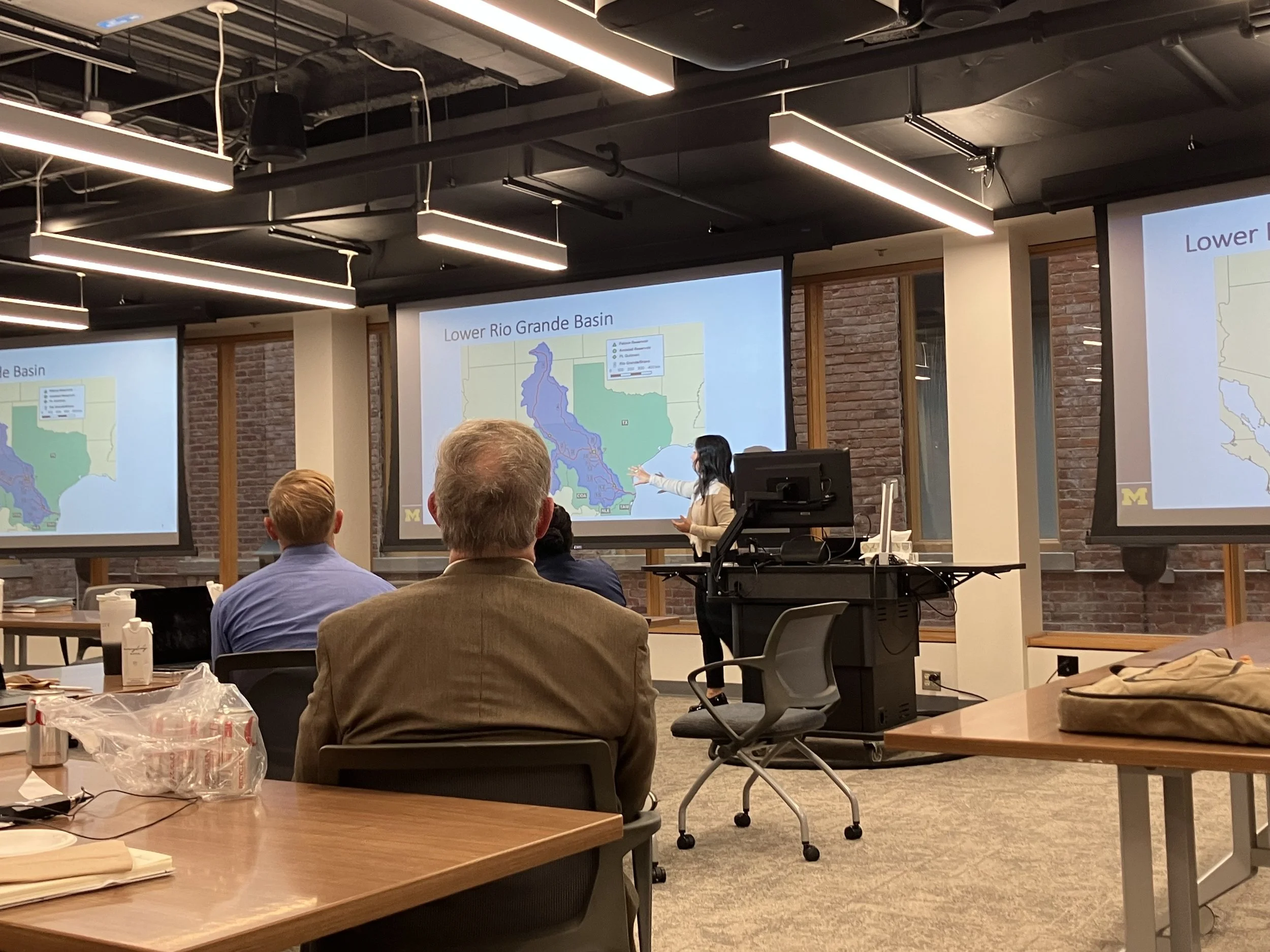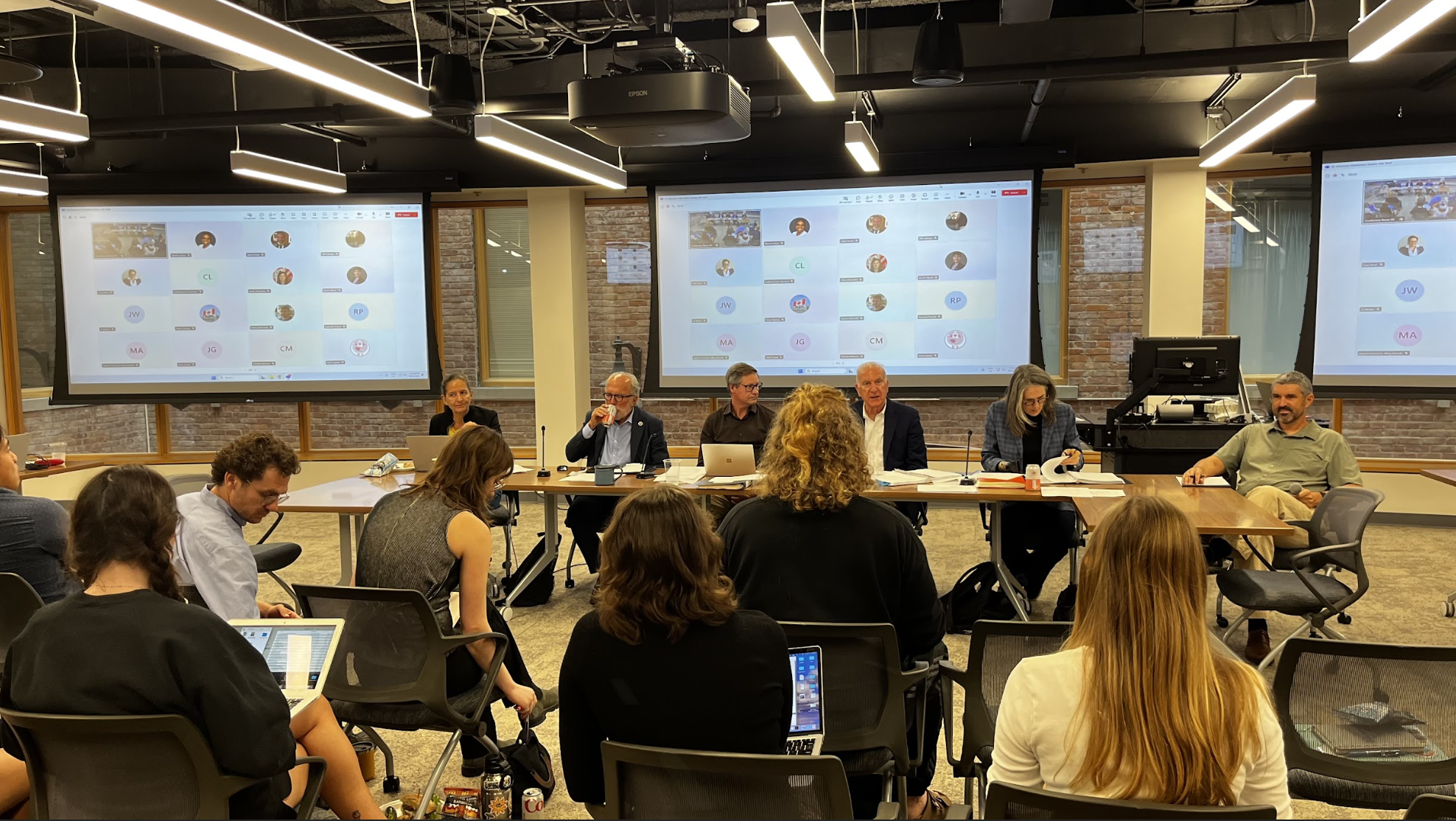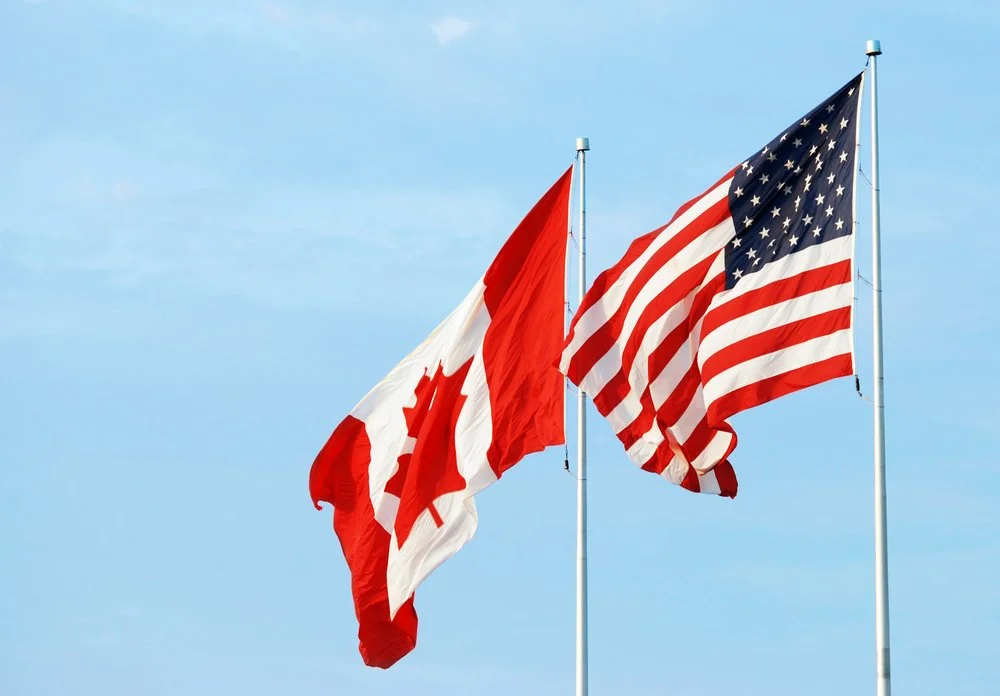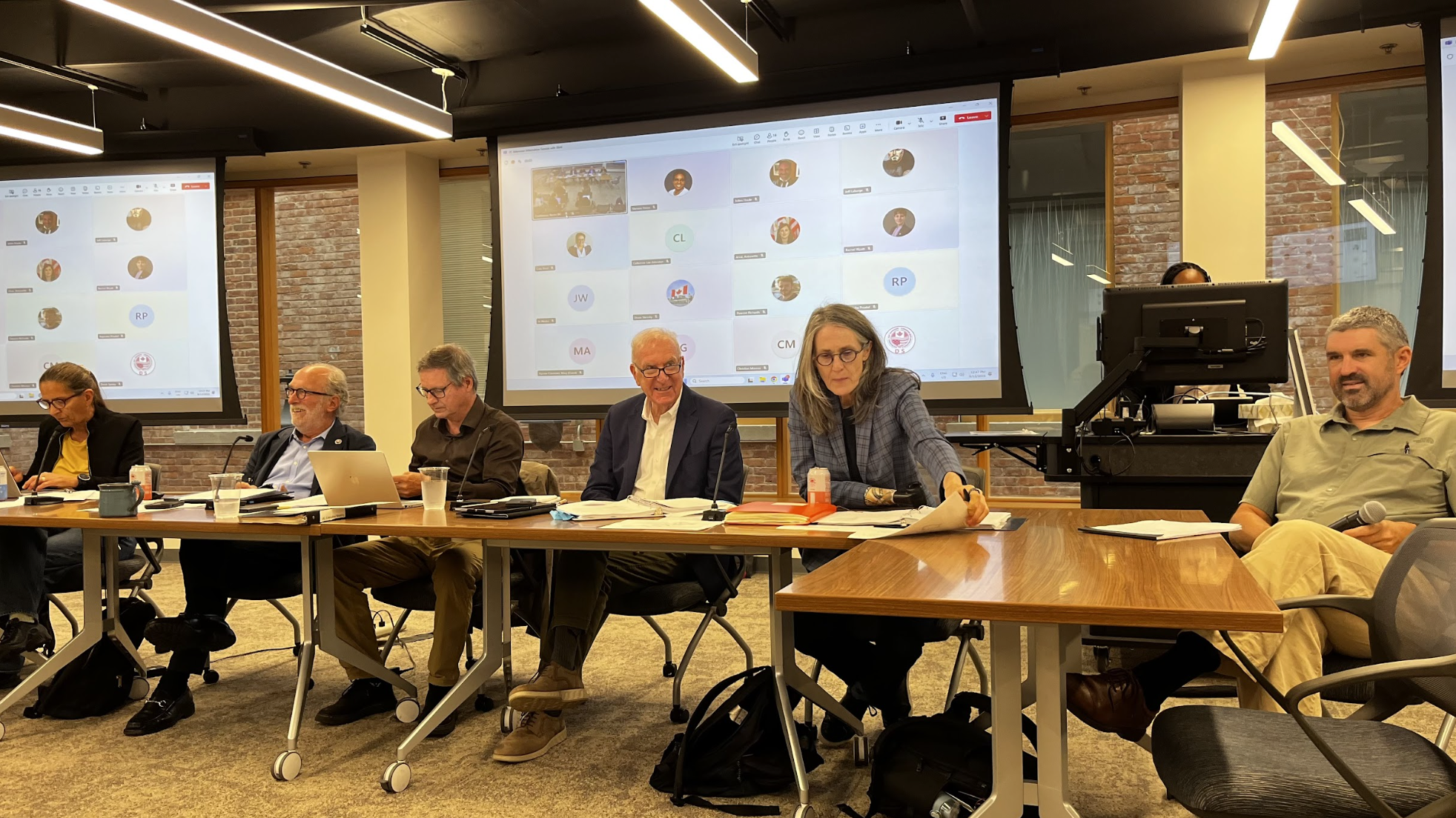
International Joint Commission
September 11-12, 2025 marked a significant moment of collaboration between SEAS Global Center for Climate Change and Transboundary Waters (GCTW) and the International Joint Commission (IJC). The Global Center hosted the International Joint Commission’s executive committee over a two day period at University of Michigan’s School of Environment and Sustainability. On Thursday, September 11, the six Commissioners (Gerald Acker, Pierre Baril, Susan Chiblow, Robert Gioia, Merrell-Ann Phare, Lance Yohe) along with the IJC staff conducted an internal business meeting.
In the late afternoon, the Commissioners heard from three of the Global Center’s PhD students. First, Sam Schurkamp highlighted his wetland ecology research on bird species richness as an indicator of wetland health. Sam remarked that, “It was a privilege to share my work with the IJC. To hold the attention of a room full of difference-makers made me feel like the work I'm doing is valuable not just for the scientific community, but for the Great Lakes as a whole.”PhD student Belinda St. Louis then summarized her harmful algal bloom modeling efforts on the Maumee River in Ohio’s Lake Erie watershed. PhD candidate Vianey Rueda closed out the session with her multi-disciplinary research on the Rio Grande River along the United States and Mexico border region. There was a good degree of discussion between the presentations and interest to follow-up as the research progresses. These talks gave the Commissioners a glimpse into the cutting edge research within the Global Center, and gave Global Center students an opportunity to share their work with a leading audience.Vianey Rueda presenting her PhD work on hydrosolidarity in the Rio Grande Basin

The Commissioners answering questions from University of Michigan students
On Friday afternoon, September 12, a joint student session of the IJC meeting was held. During this session, students from SEAS and the Ford School of Public Policy participated in a working session of the IJC in which the Commission conducted business, passed actions and moved on items. Among topics discussed were the Great Lakes Water Quality Agreement 2026 Triennial Assessment of Progress (TAP) Report and the draft 2025 of the Waters of the Great Lakes report. Drew Gronewold, lead PI and Director of the Global Center, opened the student Q&A portion of the agenda in which nearly two dozen students participated. All participants had a chance to ask questions to the Commissioners about the IJC and its influence in driving sustainable stewardship of the Great Lakes. 
This collaboration opportunity demonstrates the ongoing impact that the Global Center is making on transboundary organizations like the IJC. This meeting would not happen without the ongoing relationships developed by Global Center co-PIs and their IJC counterparts by serving on its Science Advisory Board or Water Quality Board. Conversely, the International Joint Commission is making an impact on these graduate and doctoral students who are exploring how they can change. U.S. Commissioner Ackers, a Michigan alum, was enthusiastic about bringing as many students into the Friday session as possible. He loved to hear from the students involved, revelling in their stories and intellectual interests. The Commissioners presenting their work before the Q&A
Vianey Rueda, a Global Center Ph.D. student, summarized the event well, “As students passionate about water policy, we typically engage with institutions like the IJC through textbooks and lectures, rarely getting the chance to witness their work firsthand. Attending an IJC meeting provided a unique and invaluable opportunity to observe the Commission in action and to engage directly with the individuals who drive its mission forward. Experiencing the inner workings of such a respected binational body brought our academic learning to life and offered a deeper appreciation for the complexities of transboundary water governance. Opportunities like this are essential for inspiring and preparing the next generation of water policy researchers and decision-makers.” 
